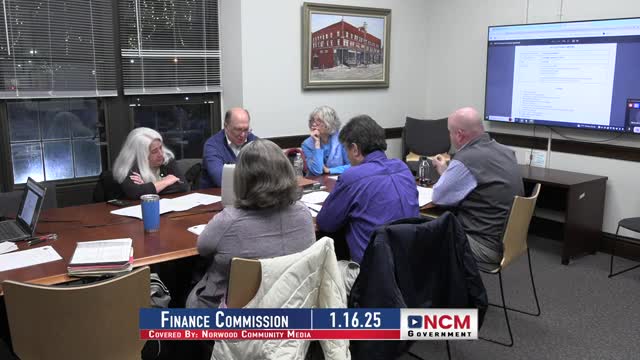Middle school project on track for summer completion; leftover debt‑exclusion funds subject to strict borrowing‑term rules
Get AI-powered insights, summaries, and transcripts
Subscribe
Summary
Commissioners received an update that the new middle school is on schedule to be completed this summer, with project closeout expected to generate significant leftover debt‑exclusion funds that are restricted to other long‑term borrowing projects of the same term.
The Finance Commission heard that the new middle school project is on schedule and that project closeout will generate funds that are legally restricted for use only on other capital projects borrowed for the same tenure.
Alan and liaison volunteers reported the project is scheduled to be completed in early June and that move‑in and punch‑list activities are timed to allow an August opening for the next school year. Tony, who presented project figures to the commission, reported the project is running under budget relative to appropriations and highlighted an approximate $11,000,000 not‑yet‑spent figure from his presentation; staff cautioned that final closeout and demolition of the old building could produce additional unanticipated costs.
Because the project was funded via a debt exclusion, Jeff explained the remaining funds are subject to constraints: surplus borrowing proceeds may only be applied to another project financed for the same amortization period (the project’s 25‑year term was cited). The commission discussed possible uses — for example, roofs or other school or town building projects that fit the 25‑year borrowing window — and noted that any re‑appropriation would follow town‑meeting or voter procedures as required for override/debt‑exclusion funds.
Why it matters: the project closeout could free substantial borrowing capacity, but legal restrictions limit how the town may reassign those dollars. Commissioners asked staff to clarify whether voter approval would be required to repurpose any remaining debt‑exclusion proceeds and to estimate timing for a formal closeout accounting.
Staff said final closeout will take time and that a formal accounting will follow demolition and acceptance of final contractor work; the commission requested a future update when the closeout figures are firm and before proposing any uses for leftover proceeds.
